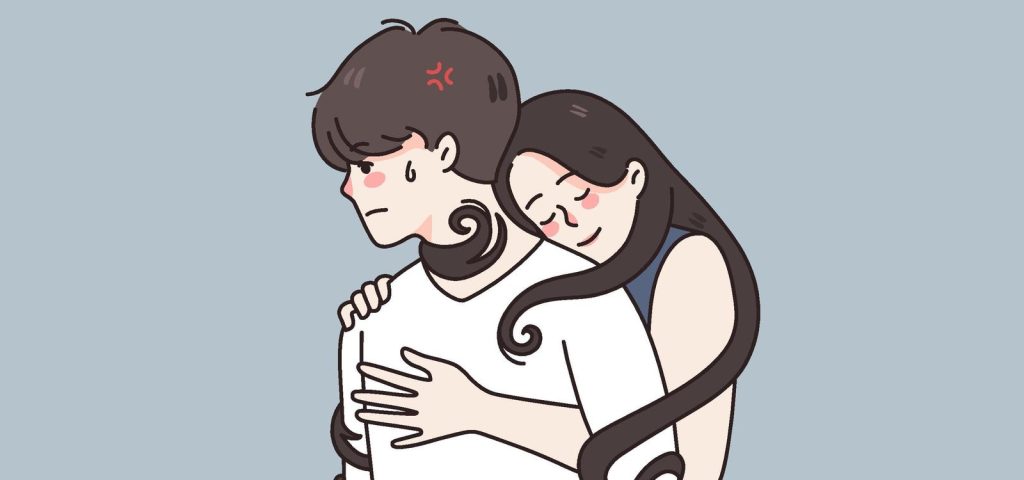In the vast array of personalities, there exists a unique group of individuals who experience emotions on a profound level—not only feeling their own emotions deeply, but also attuning to the emotions of those around them.
These “true empaths” feel everyday emotions more intensely than most and absorb the emotions of those around them. While possessing heightened empathy can be a gift, it comes with its own set of challenges, especially when it comes to romantic relationships.
Here are two ways in which high empathy personalities may struggle with love.
1. Empathic Partners May Be Overwhelmed By Intense Emotions
Navigating the vast ocean of emotions, true empaths often find themselves immersed in a deep sea of emotions and feelings, both their own and those of their partners. This heightened emotional intensity, while a testament to their empathic prowess, can be a double-edged sword, leading to feelings of overwhelm and fostering stress and anxiety.
In the context of relationships, this emotional flood can transform into a burdensome tide, challenging the delicate equilibrium required for a healthy emotional connection. Beyond the relentless waves of emotions, true empaths encounter an additional challenge: the struggle to distinguish between their own feelings and the sentiments of their partner. This lack of emotional clarity opens the door to confusion and misinterpretation, potentially giving rise to friction in the relationship.
Recent research published in the Journal of Family Psychology sheds light on this layer of complexity for true empaths, exploring the impact of stress on empathic accuracy—the ability to accurately infer another person’s inner states.
In the study, couples exposed to stress-inducing conditions exhibited a significant reduction in empathic accuracy compared to those in more relaxed environments. This implies that the external pressures and strains of life can cast a shadow over the empathic abilities of true empaths, potentially affecting their ability to perceive and understand their partner’s emotions accurately, and also leading them to feel estranged from themselves.
The emotional journey of a true empath in a romantic relationship involves not only riding the waves of intense feelings but also navigating the storms of external stressors that can impact their empathic accuracy. Recognizing these challenges is the first step toward addressing them.
For true empaths, it’s crucial to embrace self-care practices that replenish their emotional reserves. Incorporating mindfulness techniques, such as meditation, yoga or deep breathing exercises, can offer moments of reprieve amidst the emotional turbulence.
Additionally, fostering open communication with their partner about their unique needs and boundaries ensures a supportive environment. By cultivating a balance between self-care, communication and empathy, true empaths can pave the way for emotional well-being, harmony and stability in their romantic lives.
2. Empathic Partners May Have A Greater Fear Of Abandonment
Due to their deep emotional connection, especially with their partner, true empaths may find themselves grappling with an intensified fear of rejection and abandonment, a concern that often resonates more profoundly with them than others. This heightened fear can inadvertently lead to patterns of clinginess or constant reassurance-seeking behavior, introducing strains into the delicate fabric of the relationship.
However, recent research sheds light on the positive impact of empathy on marital dynamics. According to the study, high levels of empathy play a crucial role in fostering marital adjustment, offering a potential balm for the empath’s fear of abandonment.
When partners possess the ability to truly understand and feel each other’s thoughts and emotions, a foundation of mutual support and connection is established. The willingness to listen and relate to each other’s feelings becomes a cornerstone, significantly influencing the overall adjustment levels in the relationship.
In this context, empathy emerges as a powerful antidote to the fear of rejection. As couples cultivate empathic understanding, the emotional bridge between them becomes fortified, fostering an environment of trust and emotional security. The empath’s fear of abandonment may find solace in the knowledge that their heightened empathy is not a source of strain, but a valuable asset that contributes to the relationship’s overall strength.
Moreover, the research highlights the importance of forgiveness in marital adjustment. The ability to forgive and be forgiven becomes a vital contributor to the relationship’s harmony. In the empathic embrace of forgiveness, the fear of abandonment may loosen its grip, allowing partners to navigate the complexities of their emotional landscapes with compassion and understanding.
Conclusion
As true empaths grapple with swirling emotions and the shadow of abandonment fears, the cultivation of empathy and forgiveness within the relationship can serve as a beacon of hope. By fostering a deep, empathic connection, couples pave the way for a more resilient and harmonious partnership, where fears and anxieties are gradually replaced by understanding and forgiveness.
Read the full article here










